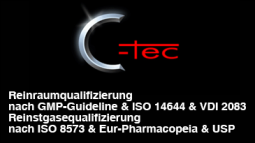Focus on Personalized Medicine
Trend Report Life Sciences
The healthcare market is booming: growing health awareness, specific prevention and healthy nutrition are just a few of the keywords here. Cross-sectoral concepts and specific nutritional supplements significantly contribute to the development of customized solutions for the areas of fitness, sports, wellness and healthcare. And in case of illness, increasingly individualized therapies are demanded.
With the decoding of the human genome nearly 20 years ago and the resulting previously unimaginable possibilities for personalized healing successes, such as vaccination against cancer, this trend was significantly accelerated.
Not infrequently, however, false hopes and expectations were and are still being raised. Depending on diagnosis and corresponding tests, administration of drugs is now indeed more optimized in terms of tolerability and effectiveness. However, therapeutic concepts often target patient subgroups. In a wide range of areas, research focuses on the development of novel diagnostic procedures and innovative drugs for tailor-made treatment approaches. Individualized or so-called personalized treatment methods are being used successfully in tumor diagnostics and tumor therapy. Tissue diagnostics permits tumors and metastases to be precisely identified, allowing more accurate monitoring and opening perspectives for customized treatment. Various factors influence the development and progression of a disease, among these age and gender of the patients. Knowledge of genetic data may allow earlier and more accurate diagnosis, more effective prevention, and optimized treatment. This success is considered to be founded on modern biotechnology, which plays a key role not only in the medical field. Biotechnological bases are setting the course for novel developments in many sectors, such as synthetic biology and bio-based materials, but also for the food industry and agriculture, as well as for pharmaceutical research and point-of-care diagnostics.
Drug Discovery: Will biopharmaceuticals dominate the future?
As a supplement to traditionally synthesized active ingredients, biopharmaceuticals are becoming increasingly important due to their high specificity of activity. The expiring patent protection of so-called blockbusters furthermore opens up new market potentials. Today, efficient development of highly effective substances is possible only in state-of-the-art, high-tech laboratories with powerful automated device systems and high-throughput sequencing. Synthesis success depends crucially on high-resolution analytical methods and meaningful analytical results. This is how analytics drives drug development. Targeted investigations of drug interactions and drug-target binding would not be possible without automated procedures such as high-throughput screening. In order to meet the increasing demands and improve flexibility in the laboratory, the individual processes must also be optimized. Sophisticated laboratory concepts, automation of work steps, and intelligent device systems support the operators in their daily laboratory routine. Automation and digitization are not only aimed at increasing throughput, precision and quality in the laboratory; they also help to prevent sources of error and routine errors, ultimately increasing efficiency and reducing costs.
Personalized approaches appear promising in regenerative medicine as well. Gene therapies, tissue engineering and bioprinting create new vistas in tissue and organ research. Functional organ structures even allow novel in vivo treatments. Thanks to microfluidics, the functionality of physiologically active cells can already be studied on a chip.
There is no large-scale application yet, but the research potential is great. An abundance of genetic and biological processes still remain to be elucidated, molecular structures and switches to be deciphered, and mechanisms of gene expression understood, in order to successfully use further bespoke therapy concepts. The way there is going to be very research-intensive. Validation and implementation of disease-specific biomarkers also pose a challenge to scientists, not only from a regulatory perspective.
analytica: the meeting place for life Sciences and personalized medicine
Novel developments in biotechnology, genetic engineering and diagnostics, as well as high-performance analysis methods and high-throughput procedures, will drive innovation and challenges in the Life Sciences and especially in personalized medicine. The latest trends will be presented to the experts at the analytica 2018. The industrial fair comprehensively presents cutting-edge technologies and future-oriented methods. Internationally renowned specialists like Dr. Friedrich von Bohlen and Halbach, Managing Director and co-founder of dievini Hopp BioTech holding GmbH & Co KG, and global players will meet in Munich for an exchange of experience, where the expertise of the industry and the latest state of the art will be exemplarily demonstrated.
What future-oriented developments in the life Sciences are going to be presented at the analytica 2018?
From sample preparation techniques and liquid handling through single-use systems and disposables to the full gamut of instrumental analytics with appropriate linkage to mass spectrometry and imaging techniques – the trade fair visitors can get an idea of the developments. Methods in immunology and molecular biology, bioreactors, assays and chip technologies are trade fair highlights just as much as high-throughput screening, sequencing, and laboratory automation are. In a well-structured and comprehensive manner, practical system solutions are presented to the used that allow achieving shorter analysis and assay times, as well as better interpretation of the measurement results and central availability of meaningful data.
Next-generation technologies will provide new impetus in diagnostics as well as in tissue and organ research. The goal is to enable previously unimaginable therapeutic approaches in general and vascular surgery, tumor therapy or even dermatology. How can this be achieved? The patient’s immune system is to be directed to react specifically to the individual tumor. Endogenous repair mechanisms ought to be specifically activated. Faster diagnoses and better therapies are expected to increase treatment successes in medicine and make therapy more reliable.
Data as a driver of personalized medicine
Computer-aided drug design and next-generation ultra-high-throughput sequencing methods quickly generate massive amounts of data. Meaningful evaluations and sustainable interpretations, rational data handling and the need for archiving and storage of sample materials, raw data and results, as required by applicable laws and established standards, pose particular challenges for researchers. In the laboratory of the future, apart from the “actual” research project the focus will be on fast data availability, a significant increase in efficiency and safety. Here, biobanks and peptide libraries are indispensable tools, especially against the background of increasing digitization. According to Tom Hudson, the director of the Ontario Institute for Cancer Research, this development has long been overdue, as he explains in an interview with the Süddeutsche Zeitung about the decoding of the human genome: „If I could turn the clock back to the year 2001, I would invest much more into the development of databases with detailed case histories and long-term observations.”
Messe München GmbH
81823 München
Germany










